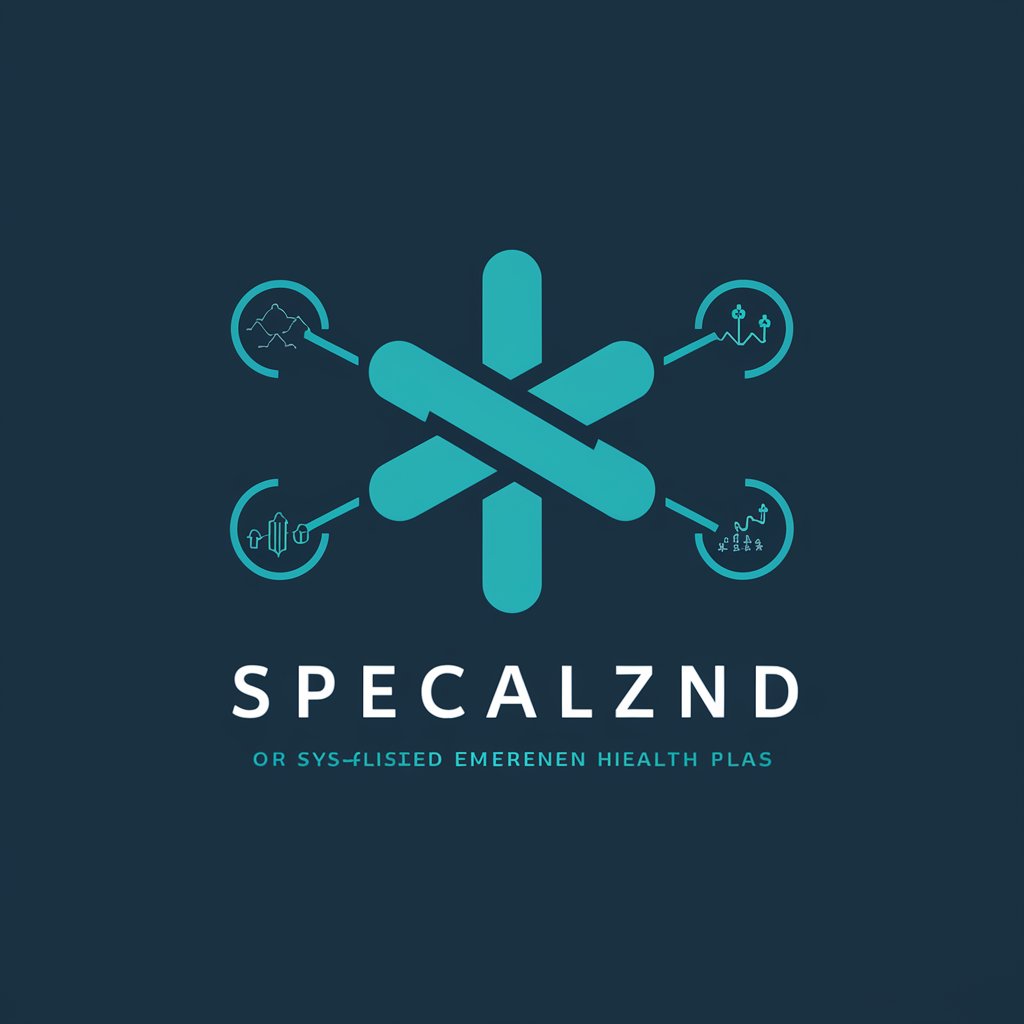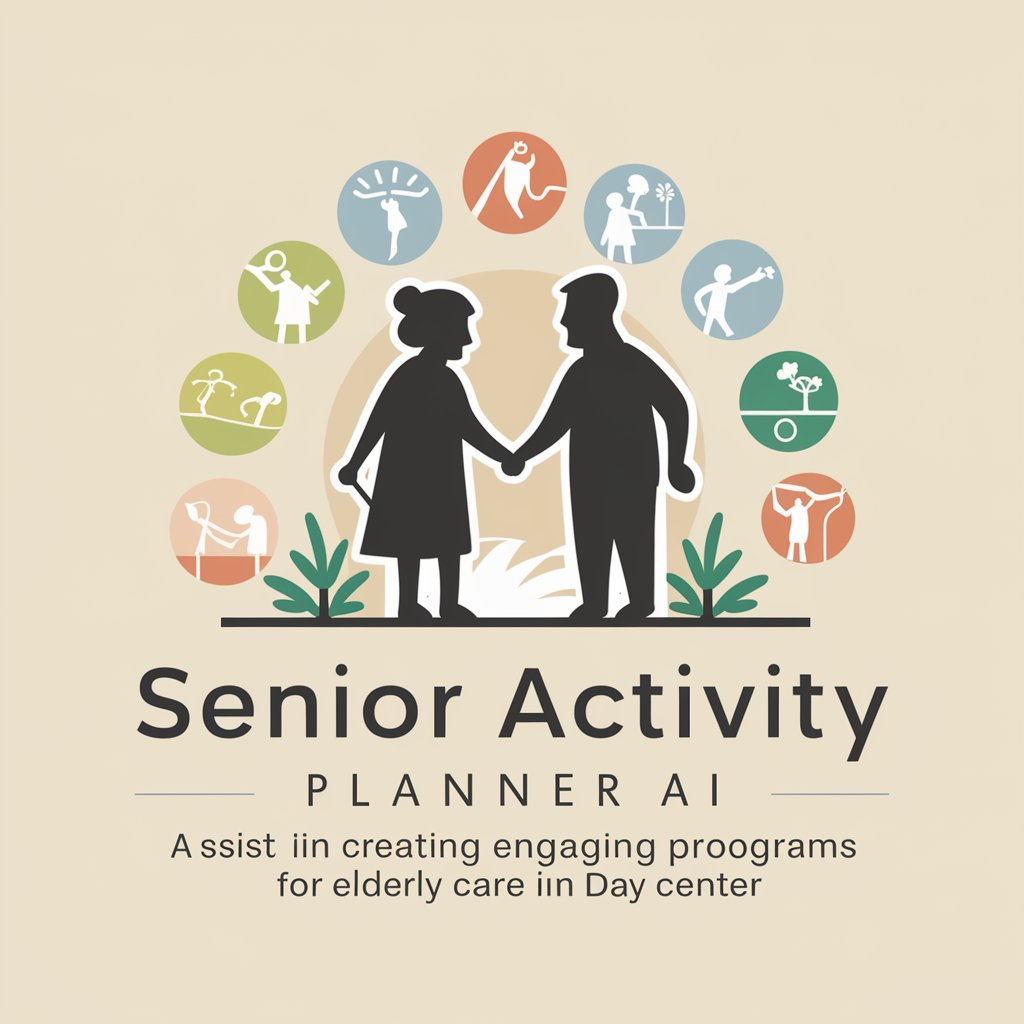11 GPTs for Wellness Programs Powered by AI for Free of 2025
AI GPTs for Wellness Programs are advanced artificial intelligence tools designed to support and enhance wellness initiatives. Utilizing Generative Pre-trained Transformers, these AI models are capable of understanding and generating human-like text based on the vast amount of data they've been trained on. In the wellness context, they're adapted to provide personalized advice, motivate users, track wellness goals, and offer support on topics like mental health, fitness, nutrition, and stress management. Their role is pivotal in delivering tailored wellness solutions that are both accessible and effective.
Top 10 GPTs for Wellness Programs are: Ava Lee,Employer Self-Funded Health Plan Strategist,🤝 Wellness Support Specialist GPT,💼✨ Employee Benefits Wizard 🧙♂️📊,🧘♂️ HR Wellness Advisor AI 🌱,🧘 HR Wellness Bot Pro 🌟,👨💼🌟 Employee Experience Wizard 🚀,🧘 WorkWell Bot - Employee Wellness🍏,🌟 Workplace Wellness Wizard 🧘♀️,Senior Activity Planner
Ava Lee
Empowering your personal and professional life with AI.

Employer Self-Funded Health Plan Strategist
AI-powered health plan optimization.

🤝 Wellness Support Specialist GPT
Empowering Workplace Wellness with AI

💼✨ Employee Benefits Wizard 🧙♂️📊
Tailor your benefits with AI-powered precision.

🧘♂️ HR Wellness Advisor AI 🌱
Empowering workplace wellness with AI

🧘 HR Wellness Bot Pro 🌟
Empowering HR with AI for Wellness

👨💼🌟 Employee Experience Wizard 🚀
Enhancing Employee Experiences with AI

🧘 WorkWell Bot - Employee Wellness🍏
Empowering Workplace Wellness with AI

🌟 Workplace Wellness Wizard 🧘♀️
Empowering workplaces with AI-driven wellness solutions.

Senior Activity Planner
Empowering Elderly Engagement with AI

Relaxation Planner
Your AI-Powered Serenity Architect

Essential Attributes and Functions
The unique capabilities of AI GPTs in Wellness Programs include personalized interaction, offering tailored health and wellness advice, and supporting mental health through conversational AI. They are adaptable, scaling from simple Q&A formats to complex counseling sessions. Special features might include language learning for accessible global use, technical support for wellness app integration, advanced web searching for the latest health trends, image creation for motivational content, and data analysis for tracking wellness progress.
Who Benefits from Wellness AI
AI GPTs for Wellness Programs cater to a wide audience, including wellness novices seeking to improve their health, developers creating health-focused apps, and professionals in the wellness industry. They are particularly accessible to those without coding skills through user-friendly interfaces, while offering extensive customization options for those with programming expertise to tailor the AI's responses and functionalities.
Try Our other AI GPTs tools for Free
Google Ads
Discover the transformative power of AI GPTs for Google Ads, your solution to automate and optimize digital advertising campaigns with ease. Enhance ad performance with AI-driven insights today.
PPC Management
Unlock the full potential of your PPC campaigns with AI GPT tools. Designed for efficiency, these advanced solutions offer tailored strategies, automated optimizations, and insightful analytics to maximize ROI.
UI Localization
Explore how AI GPTs for UI Localization are transforming software development with advanced translation and cultural adaptation, making apps user-friendly globally.
Content Internationalization
Explore AI GPTs for Content Internationalization: tailored AI solutions designed to adapt your content for global audiences, ensuring linguistic accuracy and cultural relevance.
Car Sales
Discover how AI GPTs for Car Sales are transforming the automotive industry, enhancing efficiency, and personalizing customer experiences.
Insurance Claims
Discover how AI GPTs are transforming insurance claims processing with advanced automation, data analysis, and user-friendly tools designed for professionals and novices alike.
Expanding Horizons in Wellness with AI
AI GPTs are revolutionizing wellness by providing customized solutions across various sectors. Their user-friendly interfaces facilitate easy adoption, while their versatility allows for integration into existing wellness programs or workflows, enhancing the overall user experience and contributing to the goal of improved health and wellbeing.
Frequently Asked Questions
What exactly are AI GPTs for Wellness Programs?
They are specialized AI models that provide guidance, support, and information tailored to individual wellness goals, leveraging the power of Generative Pre-trained Transformers.
How do AI GPTs understand and support wellness goals?
Through analyzing vast amounts of wellness-related data, they can offer personalized advice, motivational support, and actionable insights tailored to individual needs.
Can AI GPTs replace human wellness coaches?
While they provide substantial support, they are best used as a complement to human experts, enhancing accessibility and personalization of wellness advice.
Are there customization options for developers?
Yes, developers can utilize programming interfaces to customize the AI's functionality, tailoring it to specific wellness applications or user needs.
How accessible are these tools for individuals without technical backgrounds?
These AI tools are designed with user-friendly interfaces, making them accessible to individuals without any coding knowledge.
Can these AI tools integrate with other wellness apps and devices?
Yes, they often come with APIs and SDKs that allow for seamless integration with existing wellness apps and health tracking devices.
How do AI GPTs handle personal and sensitive information?
They are designed with privacy and security in mind, ensuring that personal health information is handled in accordance with data protection laws.
What future advancements can we expect in AI GPTs for Wellness?
Future advancements may include more nuanced understanding of user emotions, better integration with wearable technology, and enhanced personalization through machine learning.